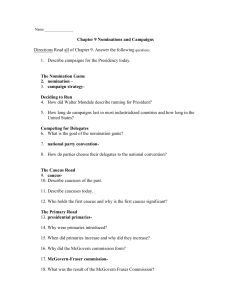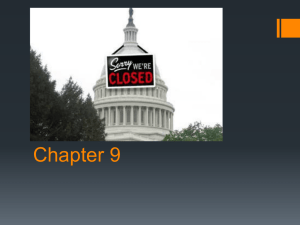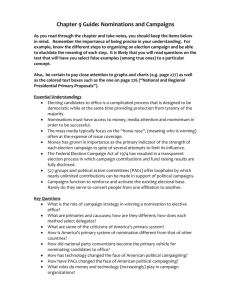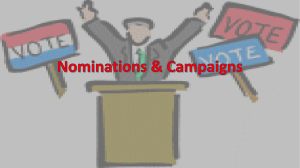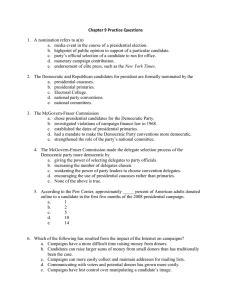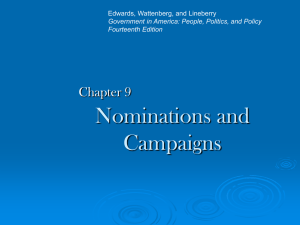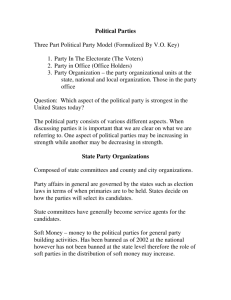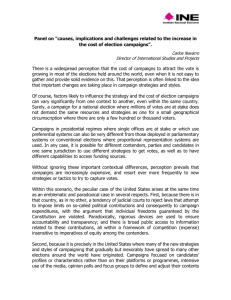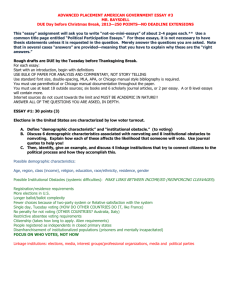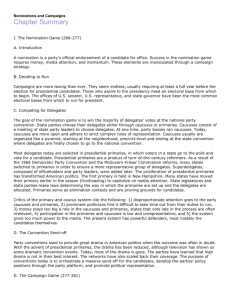Campaigns and Elections
advertisement
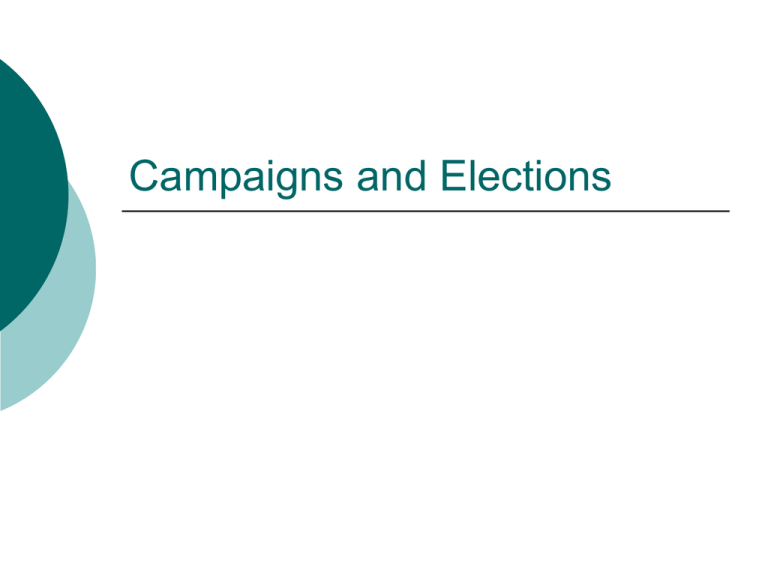
Campaigns and Elections Campaigns and Elections The Changing Nature of Campaigns Internet Web Sites Polling and Media Consultants Computerized Mailing Lists Focus Groups Presidential Campaign strategies: Run to the Middle Preserve your base while trying to win over the undecided Focus on the states with the most payoff CAMPAIGN FINANCING: In 2004 the average cost to run for the House – roughly $530,000. Roy Blunt spent $3.5 million For the Senate, close to $6.5 million. Kit Bond raised $8.9 million Presidential Campaign Spending Kerry: $310 million Bush: $345 million Both received about $75 million in public funds Overview of Campaign Finance Reform The Federal Election Campaign Act - 1971 (Applies to Presidential candidates). Designed to: Prevent undue influence by any one individual donor by limiting individual contributions: Prevent large imbalances in the level of money candidates received by setting up a system of public financing of presidential campaigns. Limit the amount of money that Presidential candidates could spend out of their own pocket IF THEY CHOOSE TO ACCEPT FEDERAL FUNDS - Role of the Federal Election Commission Monitor Campaign Contributions and Expenditures Specific Rules: For individuals, $2,000 limit per candidate per election Individual contributions of up to $25,000 to a national party committee The Role of Political Action Committees What are PAC’s? Specific Limits $5,000 limit from an individual to any one PAC per year $5,000 limit from a PAC to a candidate per election The Growing Influence of PAC’s Indirect PAC contributions – no limits Who do PAC’s support? Effects of PAC Influence Two Persistent Problems Soft Money Funds raised by the two major parties that are not subject to limits Supposed to be used for “party building activities” (e.g., get out the vote drives; voter registration activities) In 2000, soft money contributions to both parties were about 500 million. Two Persistent Problems Independent Expenditures Buckley v. Valeo (1976) upheld use of independent expenditures Bipartisan Campaign Reform Act of 2002 (McCain-Feingold) Banned Soft Money Increased limits for individual contributions The New Players: 527’s 2004 – over $500 million contributed No disclosure requirements, no contribution limits, no spending limits Is this good or bad for democracy? Reforming the System All federal campaigns publicly financed? Lower the costs of elections Shorten the campaign season Require broadcasters to provide free or low-cost advertising for candidates Reforming the System Eliminate PAC contributions? Eliminate 527’s? Set spending limits on campaigns? Presidential Nominating Conventions How have they changed over time? Convention delegates - who are they? What do they do? What is their purpose? ELECTIONS Caucuses - yesterday and today Primaries - What are they? What is their purpose? Who votes in primaries? Effects? Types of Primaries open blanket closed Electoral college What is it? How does it work?
